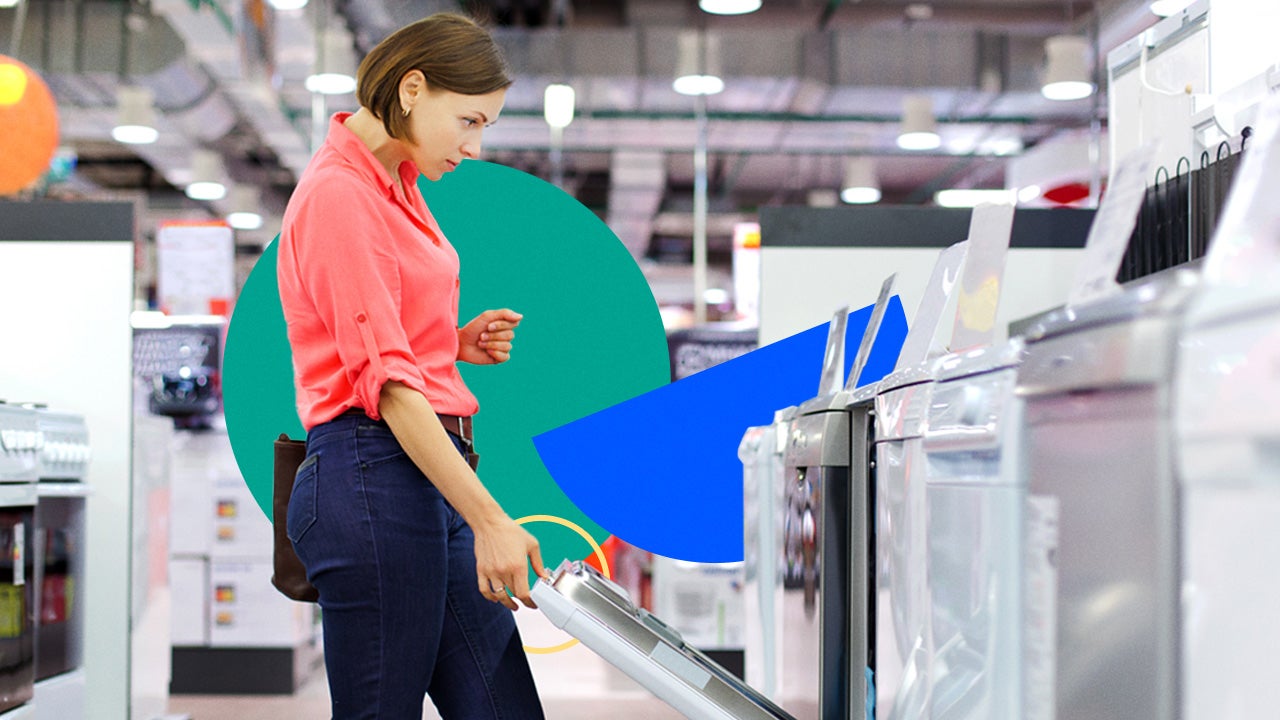Want to pay almost any bill with a credit card? You need Plastiq




Key takeaways
- Plastiq allows you to put major monthly payments such as rent and tuition on a credit card.
- While you can use Plastiq to earn credit card rewards on large transactions like rent, you’ll want to make sure Plastiq’s fees don’t outweigh the value of the rewards.
- You’ll also want to make sure you pay off your credit card on a regular basis, so your monthly rent payment doesn’t turn into long-term debt.
Your rent or mortgage is likely one of your biggest expenses. But since most landlords and mortgage issuers don’t allow payments by credit card, it can be tough to earn rewards on this spending. Changing this is the promise of Plastiq, an innovative payment platform that lets you pay almost any bill with plastic, regardless of the recipient’s available payment methods.
Plastiq gives you the opportunity to earn rewards on purchases you may not have been able to in the past, but it can also help with your cash flow, since your payment will ultimately be rolled into your monthly credit card statement. Of course, there is a catch. Like most valuable tools, Plastiq isn’t free to use — at least not all the time — but it may still be worth using.
In this complete guide, you’ll learn what Plastiq is, how Plastiq works, how to pay a bill with it, how to avoid Plastiq’s fees and more.
What is Plastiq?
Plastiq is an online payment service that lets you charge almost anything to your credit or debit card. It’s useful for paying large transactions like rent, car loan payments or tuition, which typically require payment via check or bank transfer. Those options don’t let you earn credit card rewards or defer payments like you could with a credit card.
If you want the flexibility that comes with paying on credit, as well as the opportunity to earn rewards on major transactions such as rent and tuition payments, Plastiq could be a good choice for you.
Plastiq works with all major credit issuers including Visa, Mastercard, Discover and American Express, although each of these major credit issuers may put limits on the types of transactions that can be processed through Plastiq. Car loan payments, for example, may not be possible with all credit card issuers.
Although Plastiq filed for bankruptcy in 2023, the company was immediately acquired by Priority Technology Holdings, Inc., allowing Plastiq to continue providing online payment services for both individuals and small business owners.
How does Plastiq work?
When you pay a bill via Plastiq, Plastiq then pays your recipient via their preferred payment method (paper check, ACH bank transfer or wire transfer) while letting you charge the payment to your credit or debit card.
These payment methods have different delivery timelines, which you’ll need to account for when paying your bills:
- Paper check: Within eight business days
- ACH bank transfer: Within one to three business days
- Wire transfer: Same day or next day
How to use Plastiq to pay a bill
To pay a bill via Plastiq, you’ll need to create a free Plastiq account, connect a credit card or bank account to it, add a recipient and their payment information and provide payment instructions and details. Here’s a step-by-step look at the process:
Create a Plastiq account
- Visit Plastiq.com and click the “Sign up” button. You’ll need to provide your email address, enter your name and set up a password.
- Decide how you’ll use Plastiq: for paying bills or for accepting payments.
- Confirm how you’ll make payments: for your business, yourself or a combination of both. Plastiq will send you verification codes to confirm your phone number and email address.
- Add a payment method by providing your credit card details or linking your bank account.
- Once your account is active, you can make a payment.
Make a payment with Plastiq
- While in “Pay” mode, select “Bills” and then “Manually pay a bill.” Note: if your recipient is in Plastiq’s database, their payment information is already on file. If not, you’ll need to add it.
- Add a recipient by inputting their name and account and routing numbers (for a bank transfer) and/or their mailing address (for check payment). You’ll also need to describe the goods or services they provide.
- Enter details for the bill you want to pay, including the amount and the payment method you want to use, as well as an optional invoice number and memo.
Keep in mind: Your recipient doesn’t need to have a Plastiq account or pay anything to receive payment.
Plastiq’s fees and how to avoid them
While having a Plastiq account is free, the service charges the payer the following fees:
- Credit card and debit card payments: 2.9 percent
- Bank-to-bank ACH transfers or EFTs: $0.99
- Wire transfers: $8.99 for U.S. domestic, $39 for international
This means that if you were to charge a $1,000 rent payment to your credit card via Plastiq, you’d pay an additional $29 in fees.
The most obvious way to keep Plastiq’s fees to a minimum is to use its bank-to-bank transfer option for only 99 cents, though doing so would also eliminate the benefits of earning credit card rewards and deferring your payment.
To circumvent the 2.9 percent fee for paying with plastic, Plastiq offers a referral program. If you refer someone who uses Plastiq to make at least $2,500 in payments within their first 30 days, you’ll be rewarded with 2,500 Fee-Free Dollars (FFDs), which translates to $2,500 in payments you can send without being charged a fee.
Let’s say you earn 2,500 FFDs by referring a friend who makes the qualifying amount of payments. The next time you go to put a $3,000 bill on your credit card via Plastiq, you’ll owe fees on the first $500, translating to $14.50 instead of the full $87.
If you are able to convince friends and family to use this service via your unique referral code, you may be able to process a portion of your monthly bill payments through Plastiq for free.
What bills can I pay with Plastiq?
Plastiq is most advantageous when used to pay large bills that you may not usually be able to put on a credit card, such as:
- Rent payments
- Car loan payments
- College tuition
- Daycare
- Payments to contractors
- Utility
- Medical bills
While the sky is almost the limit with what you can use Plastiq for, you can’t use it to purchase investments, “debt products,” or pay other individuals. So no, this is not a Venmo alternative.
Best credit cards to use with Plastiq bill payments
The best credit card to use with Plastiq depends on the type of payment you’re trying to make. While Plastiq works with all major credit issuers, not all credit issuers allow certain types of payments to be processed through Plastiq.
For example, neither personal Visa cards nor business Visa cards can be used to make auto loan payments — and American Express puts limits on auto loan payments as well. Plastiq offers a guide to help you understand which credit card issuers support which payments, so take a look before you decide whether Plastiq is right for you.
Given Plastiq’s significant transaction fees, the best card to use with Plastiq may be one that offers a generous welcome bonus. Paying a large bill through Plastiq may be worth it if it helps you responsibly reach the spending requirement needed to earn a sign-up bonus (as long as it’s worth more than you’ll pay in fees).
Credit cards with notable welcome offers at the time of writing include:
- Chase Sapphire Reserve®: This credit card currently offers 100,000 bonus points + $500 Chase TravelSM promo credit — equivalent to $900 when redeemed via Chase Ultimate Rewards® — when you spend $5,000 within the first three months of opening your card.
- Chase Sapphire Preferred® Card: This card is currently offering 75,000 bonus points — equivalent to $750 via Chase Ultimate Rewards® — when you spend $5,000 within the first three months of opening your card.
- The Platinum Card® from American Express: This card will reward spending $8,000 on eligible purchases within the first six months of card opening with 80,000 Membership Rewards® Points, worth up to $800 in value.
- American Express® Gold Card: This card currently offers as high as 100,000 Membership Rewards Points after spending $6,000 within the first six months of card opening. This welcome bonus is worth up to $600 in value.
Can you earn credit card rewards on Plastiq payments?
You might also be able to earn rewards on bills paid through Plastiq, but keep the 2.9 percent fee in mind. To come out ahead, your rewards rate would need to be higher than that. While many cards offer bonus categories with 3 percent or more on certain purchases, be sure to check with your issuer how it categorizes Plastiq payments.
Also, a Plastiq payment may be registered in your transactions as a service rather than as the category of the specific bill you’re paying.
Pros and cons of Plastiq
Pros
- Earn rewards: Using a credit card to pay bills you could previously only pay with check or via bank transfer gives you more opportunity to hit the minimum spend requirements for credit card welcome bonuses.
- Improve cash flow: If your rent is due on the first of the month, but you don’t quite have the money, Plastiq lets you pay your bills on time without parting with your cash until your credit card bill is due, saving you from taking on extra interest or a risky loan.
- Avoid costly late fees: If you are on the brink of making late payments, Plastiq will let you pay bills on time (and avoid late fees) with a credit card you can pay off over time. Just remember that the debt is still there — it’s just on a credit card now, potentially earning interest.
Cons
- Fees may outweigh the rewards: Unless you’re getting every transaction for free by referring your friends, Plastiq’s transaction fees will likely outweigh the rewards or cash back you’re getting. You need a card that gives you at least 2.9 percent cash back to break even when you use this service.
- Pricier payments: If you start paying all your bills through Plastiq for convenience or rewards, you will quickly find you’re paying 2.9 percent more for almost everything in your life. These fees can add up quickly, particularly when you’re using the service to pay recurring bills, such as rent or tuition.
- Credit card interest and debt: The average credit card interest rate is over 20 percent, making long-term debt on credit a costly proposition. You should only use Plastiq when you can pay your credit card bill in full each month.
Alternatives to Plastiq
Plastiq isn’t the only financial service provider that allows you to put rent payments and other monthly transactions on credit. There are many different ways to pay rent with a credit card, especially if you can make your monthly rent transfer through a service like PayPal or Venmo.
You may also want to apply for the Bilt Mastercard, which is the only credit card that allows you to earn rewards on rent payments without paying a transaction fee. Small business owners considering Plastiq may want to look into competing services like Melio, which allows you to streamline your payment processes and optimize your cash flow.
The bottom line
Plastiq can be a convenient payment platform. It allows you to pay almost any bill with a credit or debit card, even bills that would not normally allow them. Plus, it gives you the opportunity to pay off your payments down the road while still earning rewards.
However, there are several fees to keep in mind that may outweigh the benefits. For example, international wire transfer fees will tack on an additional $39 cost, so it’s important to use Plastiq strategically.
The next time you have a large bill due, you may want to consider using Plastiq to take advantage of its benefits. But first, weigh the pros and cons of Plastiq and decide if you should keep paying bills the old-fashioned way or not.
Why we ask for feedback Your feedback helps us improve our content and services. It takes less than a minute to complete.
Your responses are anonymous and will only be used for improving our website.





